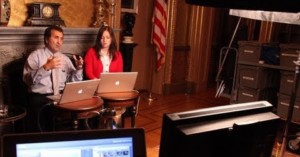
Interview with Chief Official White House Photographer Pete Souza
Here’s a pretty interesting 45-minute interview with Pete Souza, which was done via a live web chat at the …
Michael is a photography enthusiast, entrepreneur, and programmer based in Northern California near San Francisco. He graduated from the University of California, Berkeley with two degrees in computer science.

Here’s a pretty interesting 45-minute interview with Pete Souza, which was done via a live web chat at the …
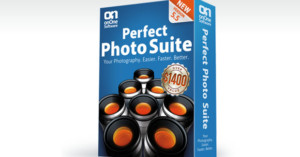
We’re giving away two (2) copies of Perfect Photo Suite 5.5 by …
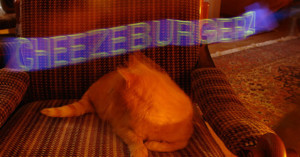
Back in September we featured a creative technique that used an iPad to "light paint" 3D objects and text. Now there's an app called Holographium that allows anyone to light paint words with an iPad, iPhone, or iPod Touch. All you do is provide some text, start taking a long exposure photo, and then drag your iPad (or whatever iDevice) through the photo while the app slowly displays the various slices of the text. The resulting photograph will show the text spelled out in 3D and floating in the air.
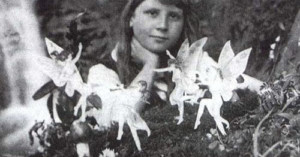
The British Journal of Photography is reporting today that Geoffrey Crawley -- the world-renowned photographer who debunked the Cottingley Fairies hoax in the 1980's -- has died. The hoax began in 1917 when two cousins named Elsie Wright and Frances Griffiths (aged 16 and 10, respectively) claimed to have discovered fairies and, after borrowing a camera, produced photos to prove it. The controversial photographs captured the world's attention for decades and even deceived Sir Arthur Conan Doyle before finally being debunked by Crawley in a series of articles published in the early '80s. In 1983 the cousins admitted that the photos were faked using cardboard cutouts.
It's interesting seeing how little it took to fool people with photographs in the early days of photography.
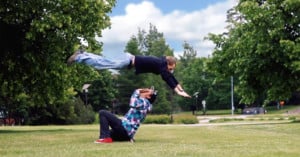
Here’s another beautiful example of what Twixtor, the $300 frame-rate conversion …
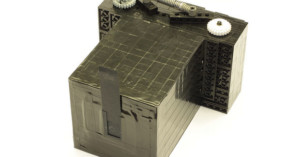
Fernando Ramírez Martínez (snipfer on Flickr) created this awesomely geeky medium format camera using Lego pieces.
We started sorting bricks out and after a couple of afternoons working on the camera obscura we managed to get some shots out of the thing. It was built using Lego pieces, duct tape, black cardboard and some glue. The camera shoots 6x6 and the "lens" sports a focal length of 150mm with an aperture of 1:300. All measurements approximate.
In the front there is the shutter and the pinhole. In the back, the gear on the left is the film advance. The white gear on the right has a clutched axis that prevents the film spool from moving freely. The "suspension" does not allow the film advance to turn backwards.
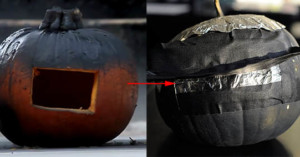
Claire O'Neill and Mito Habe-Evans over at NPR's The Picture Show blog have just posted a fun experimental project you can try out this halloween: making a pinhole camera out of a pumpkin. What you'll need is a pumpkin, aluminum foil, a knife, tape, photo paper, dark spray paint, and access to a dark room. Along with the disturbing skull camera we shared earlier today, this would be a fun way to capture photos of trick-or-treaters this halloween.
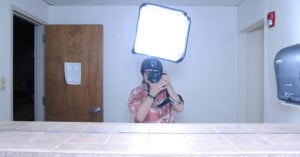
This is Flickr user MrDAT‘s homemade halloween costume. He used a Nikon SB-600 …
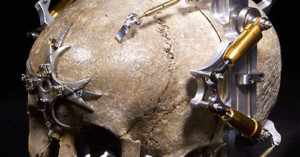
There probably isn't a more suitable camera for halloween picture taking than "Third Eye", a macabre pinhole camera created with a 150-year-old human skull by Wayne Martin Belger. Light enters the camera through the "third eye" on the forehead, exposing the film that's placed in the middle of the skull.
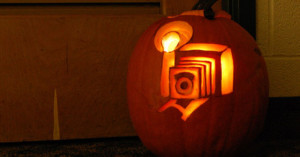
Halloween is coming up — are you geeky enough to make your pumpkin photography-themed? This one has a Graflex …
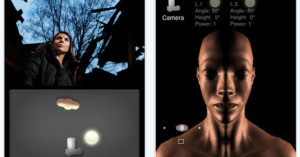
Light Studio is a new iPhone app designed to teach you the basics …
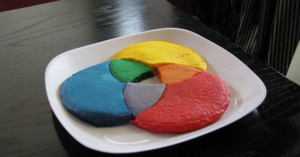
After a long night of working in CMYK, you’re ready for a change, so what do you do? Bust …
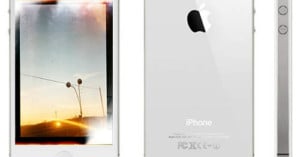
When Apple unveiled the iPhone 4, they also showed off a white version that would be available alongside the black one. Since then, however, the company repeatedly pushed back the launch date for the white version, claiming that the white one was, "more challenging to manufacture than we originally expected".
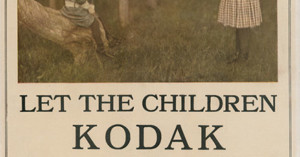
This is a Kodak advertisement that ran in the The Saturday Evening Post …
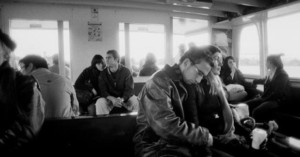
A couple days ago we covered the winning image of the British Journal of Photography's international photo contest and how many readers disagreed with the photo's merits. The prize for that contest was a one week exhibition and a Sigma digital compact camera. Now compare that to the above photograph, which won AU $80,000 in the 2010 Moran Contemporary Photographic Prize, one of the richest prizes in the world. Like the BJP photo, this photograph became the subject of debate.
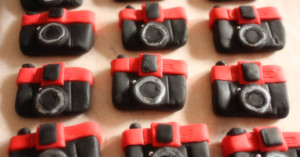
Jenny from I Love Muffins created these awesome mini fondant lomo cameras for decorating cakes with. If you enjoy making cakes, this could be a fun project when making them for photography-enthusiast friends.
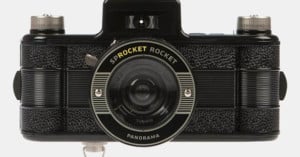
The Sprocket Rocket is a new analog camera by Lomography that the company claims is the first camera dedicated to sprocket hole photography. The sprocket holes of 35mm film are included in each panoramic exposure, giving the resulting images a unique look. Two knobs on the camera wind the film in both directions, allowing you to create multiple exposures images as well.

Earlier this month we reported that there was a star-studded short film being shot entirely with the …
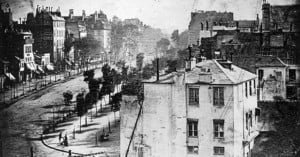
This photograph of Boulevard du Temple in Paris was made in 1838 by Louis Daguerre, the brilliant guy that invented the daguerreotype process of photography. Aside from its distinction of being a super early photograph, it's also the first photograph to ever include a human being. Because the image required an exposure time of over ten minutes, all the people, carriages, and other moving things disappear from the scene. However, in the bottom left hand corner is a man who just so happened to stay somewhat still during the shot -- he was having his shoes shined.
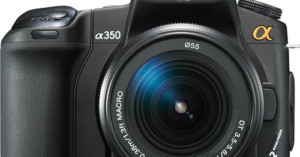
There was a rumor circulating today that Sony was potentially an acquisition target of Apple, which has $51 billion …
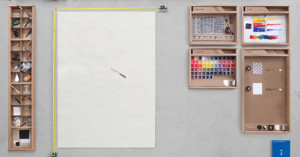
Maybe this is what "Photoshop" would be like if computers had never been invented. This workspace has it all -- tools, rulers, layers, etc... These are probably the tools the "I Have PSD" guy uses.
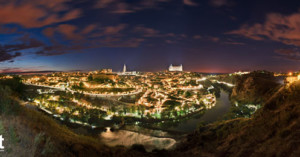
Wanting to capture a nighttime panoramic photograph of Toledo, Spain in which darker areas were illuminated, the …
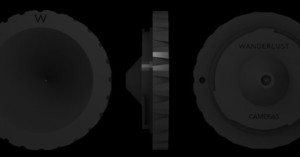
The Pinwide is a new pinhole cap by Wanderlust Cameras that takes advantage of the mirrorless nature of Micro Four Thirds cameras by recessing the cap into the body of the camera, achieving a wide field of view and strong natural vignetting. The "lens" is the equivalent of a 22mm on a 35mm camera, and boasts a perfectly round pinhole "made with the same precision etching technology used to manufacture semicoductors" to ensure sharpness.

Nikon is a player in the 3D game now, though not by releasing any 3D-capable camera. Instead, they’ve announced …
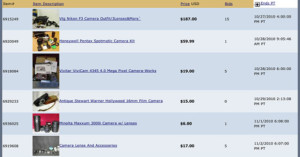
Goodwill has an online auction site called shopgoodwill, and categories in the …
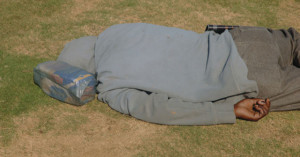
The British Journal of Photography announced recently that South African photographer Michelle Sank's image "Man asleep on the Golden Mile, Durban, South Africa." had won the single image category of its International Photography Award.
The image, which shows a man asleep in a park just off the Golden Mile in Durban, was described by judges Nick Galvin, Bruno Ceschel and Diane Smyth as both surreal and disturbing, and was picked out from 338 other entries because of its quiet, enduring intensity. "The more I look at it, the more powerful it becomes," commented Galvin, who manages the archive at Magnum London.
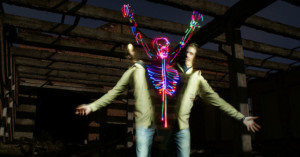
This is one of the most creative examples of light painting we’ve seen — Flickr user …
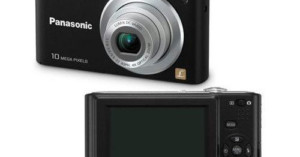
Amazon is selling the 10 megapixel Panasonic DMC-F2K Lumix compact camera for $69 …
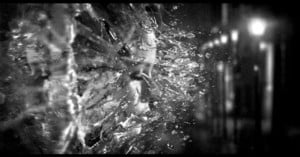
"Nuit Blanche" is a 4-minute long short film by Arev Manoukian of SpyFilms that will blow your mind. While you're watching it, try to guess how it was created -- see if you can pick out what's real and what's "shopped". It may remind you a bit of The Third & The Seventh, another mind-blogging short we shared at the beginning of the year.
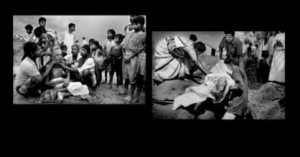
If you have 20 minutes to spare, here's an interesting video in which winning photographers of the 66th Pictures of the Year International contest discuss the power of photojournalism and some of their work. This is similar to the "What Makes a Great Picture?" by National Geographic that we shared back in September.